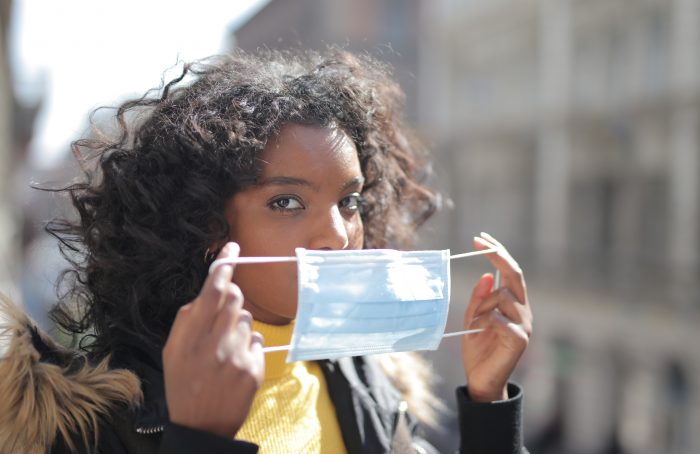As we begin to slowly emerge from our COVID-19 cocoons, I’ve been reflecting on the paradox of this time period.
We like to classify the quarantine as an “extraordinarily interesting time,” but it has felt more like one long, monotonous day after another.
I am in week 12 of lockdown in Spain. Unless you’re in the minority of enlightened souls living purely in the present moment, such as Eckhart Tolle, this period has probably been quite challenging to navigate.
It was around week four that the ordeal of boredom reared its ugly head for me.
Week one was pretty straightforward. It passed in a blurry haze of confusion and panic as I tried to get my head around what was happening. Like many people, I obsessively checked and rechecked the COVID-19 stats around the world, and scoured the news for signs of hope.
Thrilled at not having to go to work and not having any responsibilities to meet, I checked in with family and friends (and everyone else I’ve ever known) and binge-watched way too much TV.
I’ll skip over week two because it mostly involved self-comforting with wine, cigarettes, Facebook scrolling, and poor dietary choices. I knew it wasn’t helpful, but I just couldn’t stop myself. If my goal had been to make myself feel extra sh*tty, it was reached with 100 percent success!
By week three, I felt I needed to get a grip. I decided it was probably important that I started showering and getting dressed and eating something other than ice cream straight from the carton. I got busy. I cleaned every part of my apartment (twice), attempted (for two days only) online exercise classes, filed my tax return, cooked proper meals, learned how to bake, attended Zoom parties, painted the spare room. I even ironed clothes (that’s when you really know you’re in trouble).
So, when week four arrived, there was literally nothing else to be done within my own four walls. I wandered from room to room, looking for some sort of activity to fill this growing, impending sense of doom. Nothing. My life had never been so organized, uncluttered, and up-to-date. My diary had never been so empty.
I suddenly felt the aloneness of it all. I felt trapped, restless, and bored. Without the usual external distractions—going to work, meeting up with friends, going to the beach, shopping for crap I don’t need, a trip to the cinema—there was a big, gaping space to fill (by myself).
In a moment of madness, I googled whether it’s possible to die from boredom—and came across a Science Focus article that said:
“Boredom is just a state of mind and won’t kill you directly,”
(Hooray!)
“but the greatest risk from boredom stems from the things you do to combat it.”
(There’s always a bloody “but.”)
Dismayed that this ruled out returning to my week-two strategy and masking my boredom by overeating, sampling too many local wines, smoking, checking my phone 500 times, or spending the week in bed with Netflix, I had to find some other way.
As I sat with my thoughts, I began to understand that this sense of boredom wasn’t due to a lack of energy or desire to be doing something; it wasn’t about filling the time with any old activity. It was about finding things to do that inspired me, brought me joy, or felt meaningful in some way. I still wasn’t sure how to fix that—somewhere along the way, I’d lost touch with the things that truly engage and energize me.
Several hours later, as I sat staring at the wall, the universe did that magical thing that she does (if you’re paying attention) and sent me some assistance via the cat. It wasn’t an obvious or glamorous sign by any stretch of the imagination—merely a clumsy cat knocking a book off of the bookcase (oh to be a cat and have such easy ways to amuse yourself). As the book hit the floor, a tatty piece of paper fluttered out across the room, resting at my feet.
This is what was on that piece of paper:
Things To Do In The Belly Of The Whale by Dan Albergotti, Things to Do in the Belly of the Whale, from The Boatloads. © 2016 Used with the permission of The Permissions Company, Inc. on behalf of BOA Editions Inc., www.boaeditions.org.
Measure the walls. Count the ribs. Notch the long days.
Look up for blue sky through the spout. Make small fires
with the broken hulls of fishing boats. Practice smoke signals.
Call old friends, and listen for echoes of distant voices.
Organize your calendar. Dream of the beach. Look each way
for the dim glow of light. Work on your reports. Review
each of your life’s ten million choices. Endure moments
of self-loathing. Find the evidence of those before you.
Destroy it. Try to be very quiet, and listen for the sound
of gears and moving water. Listen for the sound of your heart.
Be thankful that you are here, swallowed with all hope,
where you can rest and wait. Be nostalgic. Think of all
the things you did and could have done. Remember
treading water in the center of the still night sea, your toes
pointing again and again down, down into the black depths.
The universe works in mysterious ways. Note to self: pay more attention from now on.
Now, I have no idea what the writer of this poem intended when he wrote this back in 2016. Still, for me, it spoke of attending to the practical things we can do in our immediate, external environment (tick), and then, once they’re exhausted, looking within ourselves.
By relaxing our bodies, and quieting our minds, we allow our hearts to be more sensitive to whatever situation we find ourselves in. We can open up to our inner thoughts, qualities, and resources, which can help us to grow—even if it’s a bit scary!
Handled in the right way, boredom is a beautiful opportunity to grow through getting to know ourselves better, learning what brings us joy, and finding ways to engage with the world more meaningfully.
We don’t often get (or make) the time or space to do this in our busy, distracted lives, so in some ways, this lockdown situation has been a real gift—to “review each of (y)our life’s ten million choices.”
I know for many of my friends, this time of enforced, quiet reflection has made them realize they’ve just been treading water in their lives, and that life’s too short not to be doing the things they love. For them, this has triggered big life-changing decisions, such as career changes, devotion to family, addressing health issues, ending relationships, or rekindling faded friendships.
For others, it’s been a subtler shift—remembering the things that we genuinely enjoy, that we’d stopped making time for. Rather than the routine option of zoning out in front of the TV, we’ve rediscovered our love of reading, listening to music (and dancing like no one’s watching—because in lockdown, they really aren’t), yoga, meditation, cooking, painting, playing an instrument, gardening, learning a new language, singing, writing, and truly connecting (even if we’ve had to do that via Zoom, Skype, FaceTime).
This great pause has forced many of us to look more deeply at our daily routines and to allow our imaginations to run wild—either finding fresh joy and connection in known activities or exploring and creating something entirely new for ourselves.
As lockdowns are easing around the world, and we tentatively begin stepping out into the new normal, I hope we don’t all rush back to our old patterns (even though this is by far the most comfortable option). I hope we continue to make better use of our free time—allowing creativity, self-expression, and a deeper connection to become our new priorities.
I’d love to hear about passions you’ve rediscovered through the lockdown or any guiding signs the universe has sent you during your time of isolation.











Read 6 comments and reply